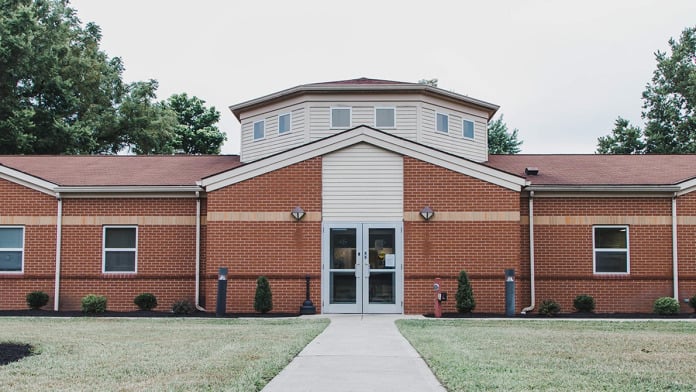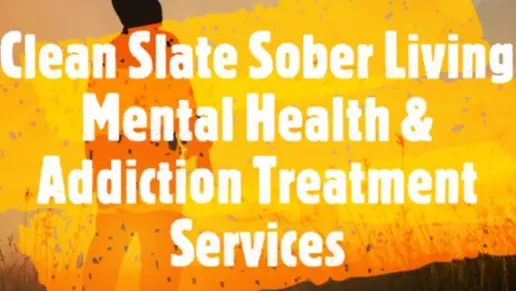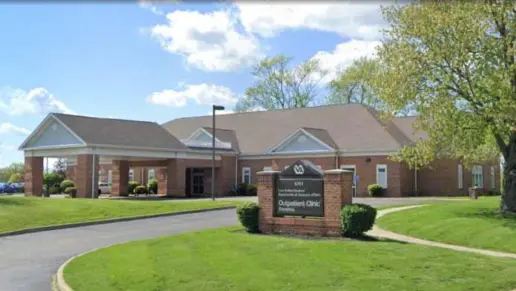About Sojourner Recovery Services – Outpatient
Sojourner Recovery Services - Outpatient in Hamilton, Ohio, provides outpatient substance use and mental health services. Clients have access to case management, counseling, peer recovery support and other helpful services. The facility offers both an intensive and non intensive outpatient program. Sojourner Recovery Services is located about 20 miles north of Cincinnati. You’re able to recover in the calm environment that a small town provides while still being close to all the excitement that a big city offers. After an assessment interview to determine your individual needs and goals, the staff will create an individualized treatment plan for you.
Sojourner provides gender responsive treatment based on your identified gender. You have the flexibility of receiving outpatient services in the morning, afternoon or evening. A great thing they provide for parents is onsite childcare while you’re undergoing treatment. You can also choose to receive your treatment in person or via telehealth.
You’ll participate in outpatient group sessions on a weekly basis and receive individual therapy at a frequency based on your needs. In intensive outpatient services, you’ll do a total of 10 hours of individual and group counseling a week. The most intensive level of outpatient care Sojourner Recovery Services offers is their partial hospitalization program (PHP). The amount of individual and group counseling you’ll receive in this program will total 20 hours a week.
The facility understands that having the support of friends and family makes it more likely you’ll achieve long term recovery, which is why they offer family counseling. The counselor will facilitate open and honest dialogue between you and your family to help improve the relationship.
If you’re looking for fun sober activities to do in the area between treatment sessions, some of the top sights to see in Hamilton are the Pyramid Hill Sculpture Park and the Fitton Center For Creative Arts. A half hour away in Mason, Ohio, you can have a fun afternoon at the Kings Island Amusement Park.
Latest Reviews
Rehab Score
Gallery

Location
Other Forms of Payment
Medicaid is a state based program that helps lower-income individuals and families pay for healthcare. Medicaid covers addiction treatment so those enrolled can use their coverage to pay for rehab. When a program accepts Medicaid the client often pays very little or nothing out of their own pocket.
Medicare is a federal program that provides health insurance for those 65 and older. It also serves people under 65 with chronic and disabling health challenges. To use Medicare for addiction treatment you need to find a program that accepts Medicare and is in network with your plan. Out of pocket costs and preauthorization requirements vary, so always check with your provider.
Military members, veterans, and eligible dependents have access to specific insurance programs that help them get the care they need. TRICARE and VA insurance can help you access low cost or no cost addiction and mental health treatment. Programs that accept military insurance often have targeted treatment focused on the unique challenges military members, veterans, and their families face.
Addiction Treatments
Levels of Care
Treatments
Substance rehabs focus on helping individuals recover from substance abuse, including alcohol and drug addiction (both illegal and prescription drugs). They often include the opportunity to engage in both individual as well as group therapy.
Clinical Services
Cognitive Behavioral Therapy (CBT) is a therapy modality that focuses on the relationship between one's thoughts, feelings, and behaviors. It is used to establish and allow for healthy responses to thoughts and feelings (instead of unhealthy responses, like using drugs or alcohol). CBT has been proven effective for recovering addicts of all kinds, and is used to strengthen a patient's own self-awareness and ability to self-regulate. CBT allows individuals to monitor their own emotional state, become more adept at communicating with others, and manage stress without needing to engage in substance abuse.
Dialectical Behavior Therapy (DBT) is a modified form of Cognitive Behavioral Therapy (CBT), a treatment designed to help people understand and ultimately affect the relationship between their thoughts, feelings, and behaviors. DBT is often used for individuals who struggle with self-harm behaviors, such as self-mutilation (cutting) and suicidal thoughts, urges, or attempts. It has been proven clinically effective for those who struggle with out-of-control emotions and mental health illnesses like Borderline Personality Disorder.
Group therapy is any therapeutic work that happens in a group (not one-on-one). There are a number of different group therapy modalities, including support groups, experiential therapy, psycho-education, and more. Group therapy involves treatment as well as processing interaction between group members.
In individual therapy, a patient meets one-on-one with a trained psychologist or counselor. Therapy is a pivotal part of effective substance abuse treatment, as it often covers root causes of addiction, including challenges faced by the patient in their social, family, and work/school life.
Motivational Interviewing (MI) is a clinical approach to helping people with substance abuse issues and other conditions shift behavior in positive ways. It is more goal-oriented than traditional psychotherapy, as MI counselors directly attempt to get clients to consider making behavioral change (rather than wait for them to come to conclusions themselves). Its primary purpose is to resolve ambivalence and help clients become able to make healthy choices freely.
Trauma therapy addresses traumatic incidents from a client's past that are likely affecting their present-day experience. Trauma is often one of the primary triggers and potential causes of addiction, and can stem from child sexual abuse, domestic violence, having a parent with a mental illness, losing one or both parents at a young age, teenage or adult sexual assault, or any number of other factors. The purpose of trauma therapy is to allow a patient to process trauma and move through and past it, with the help of trained and compassionate mental health professionals.
Contact Information
515 Dayton Street
Hamilton, OH 45011


